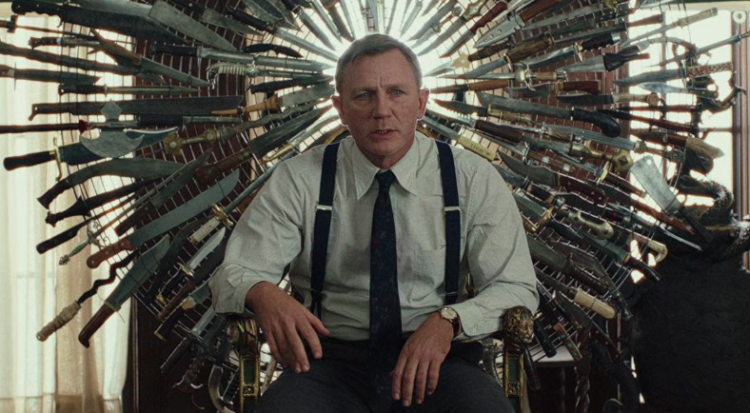Late last year, Rian Johnson released a follow-up to his surprising 2019 hit, Knives Out. This time, Benoit Blanc has a new adventure that takes place on a lavish estate on a Greek island. It features an eccentric group of wealthy societies and billionaire Miles Bron for their yearly reunion. It’s unknown why Blanc’s presence is needed until someone turns up dead during the expensive party.
Upon release, Glass Onion was well-received by both critics and fans. Surprisingly, the Netflix exclusive didn’t make much of a dent on the Oscar circuit as it was only nominated for Best Adapted Screenplay. When you look back at the film, that lack of strong nominations made sense. Glass Onion was a good film that was pulled under by the weight of its numerous twists and turns. Of course, that’s crucial for a murder mystery, but the ultimate drawback for the sequel is that most of its steam is lost by the time it reaches the credits.
The Original Knives Out Was Simple

Knives Out was full of twists and turns too. It needed to be as a straightforward murder mystery is no fun. The key word is mystery, so there needs to be a complex journey before the true serial killer is revealed. However, the concept was a bit more simple as we knew from the beginning that Harlan Thrombey (Christopher Plummer) was dead from the offset. That allowed for the story to immediately start by developing the characters as the mystery is slowly being unraveled.
Knives Out isn’t slowed down by an abundance of flashbacks, nor is their copious amounts of exposition being spewed throughout the film. The first film had its drawbacks as well, but Rian Johnson did an excellent job at keeping the focus on Marta (Ana de Armas) and Detective Blanc. The supporting characters around these two only enhanced their story further. Not everyone in the all-star cast is given a huge spotlight, but their characters are given enough depth for audiences to understand.
There are even extremely subtle moments that bring out the themes of the film. The Thrombey’s consistently lying about being outvoted from Marta attending the funeral to Richard handing her a plate during a huge conversation. It highlighted the way they viewed her character and showcased that Johnson trusted his audience to understand the context of small moments like this.
Glass Onion Was Too Convoluted For Its Own Good


The lack of simplicity for Glass Onion is what truly did the film in. There are still subtle moments and depth added to each character, but the story doesn’t get going until Duke dies. This happens around the hour mark. There’s still some mystery before that moment happens as it’s made clear that Blanc shouldn’t be there.
However, the main focus is on the dynamic of the shady cast of characters this time around. There’s no denying that the characters are wildly entertaining. But in exchange, the momentum is flat because there’s no murder to solve and there’s too much character building. It kills the mystery somewhat because the purpose of the murder mystery is to shock and surprise the audience. We knew too much about the supporting characters that make it clear that everyone was a suspect, so it wasn’t surprising that the prime candidates weren’t the ones behind Duke and Andi’s murder. It’s odd that Miles knows he killed Andi, yet, it took him over an hour to try and get rid of her for good.
Glass Onion Is Still A Good Film, But…


There are so many layers to Glass Onion that some of the plot points needed to be condensed. Understandably, everyone needed to come across as a suspect. However, did there need to be a twist that Andi had a twin? How did nobody know this, including the billionaire himself? The story becomes so wrapped up in twists and turns that every flashback needing to explain everything kills the momentum. Knives Out had flashbacks too. But it felt organic and didn’t overstay its welcome. The complex themes of Glass Onion make for a perfect murder mystery. However, the overreliance on twists and turns holds it back from being better than its predecessor.
